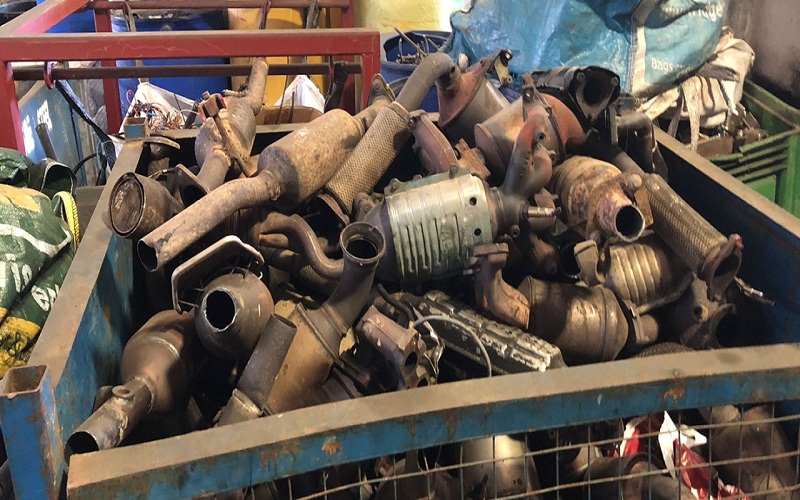The Importance of Catalytic Converter Recycling: Environmental Benefits Explained

Catalytic converters play a critical role in lowering harmful emissions from cars by transforming poisonous gases into less dangerous chemicals. However, because these gadgets include priceless metals like rhodium, palladium, and platinum, recycling them is important for the environment and the economy. In this post, we’ll examine the significance of recycling catalytic converters and their environmental advantages.
About Catalytic Converters
To lessen the negative effects of car emissions on the environment, catalytic converters are a crucial component of the automotive sector. Precious metals found in them function as catalysts, transforming toxic pollutants such as hydrocarbons, nitrogen oxides, and carbon monoxide into less toxic forms like nitrogen, carbon dioxide, and water vapour. Catalytic converters are an efficient way to cut emissions, but their manufacture and disposal can have negative effects on the environment. Recycling them is therefore essential for both environmental and financial reasons.
Cutting Down on Resource Extraction
The necessity for raw material extraction is lessened, which is one of the recycling of catalytic converter’s environmental advantages. The three main metals used in catalytic converters—platinum, palladium, and rhodium—are rare and frequently extracted from environmentally delicate regions. The requirement for new mining is reduced by recycling these metals from outdated converters, protecting natural ecosystems and lessening the environmental impact of mining operations.
Energy Preservation
Energy is also saved by recycling catalytic converters as opposed to manufacturing new ones. Energy-intensive processes that release greenhouse gases and demand a lot of power are used to extract and refine metals from ore. Recycling, on the other hand, uses a lot less energy because it doesn’t require melting converters to extract valuable metals. Recycling helps mitigate climate change by reducing greenhouse gas emissions and using less energy.
Keeping the Pollution Out
The contamination of land, water, and air can result from the improper disposal of catalytic converters. These gadgets pose threats to ecosystems and human health when they are disposed of in landfills because they can release dangerous metals into the environment. Catalytic converter incineration also emits toxic fumes into the atmosphere. Recycling guarantees that the metals in the converters are treated and reused appropriately, avoiding contamination and lessening the environmental effect of disposing of them.
Preserving Landfill Area
The amount of trash produced rises in tandem with the growth of the automotive sector and the number of cars fitted with catalytic converters. Catalytic converter recycling can help landfills save important space. The metals recovered from recycled converters can be utilised in new catalytic converters or other industrial uses, prolonging their lives and lowering the demand for additional disposal sites, as opposed to adding to the garbage already present in landfills.
Conclusion
Recycling catalytic converters has several positive effects on the environment, such as lowering resource extraction, preserving energy, avoiding pollution, and preserving landfill space. Catalytic converter recycling is becoming more and more crucial as the automobile industry shifts to greener and more sustainable methods. Together, governments, businesses, and consumers can minimise the negative environmental effects of automobile emissions and protect valuable resources for future generations by supporting and encouraging recycling activities.






